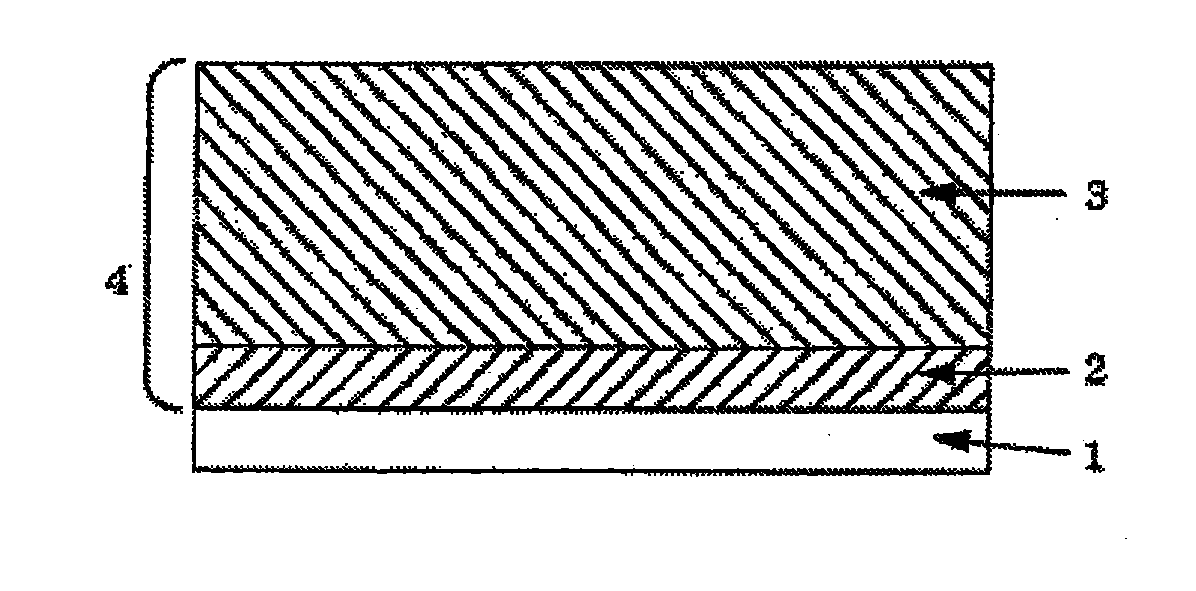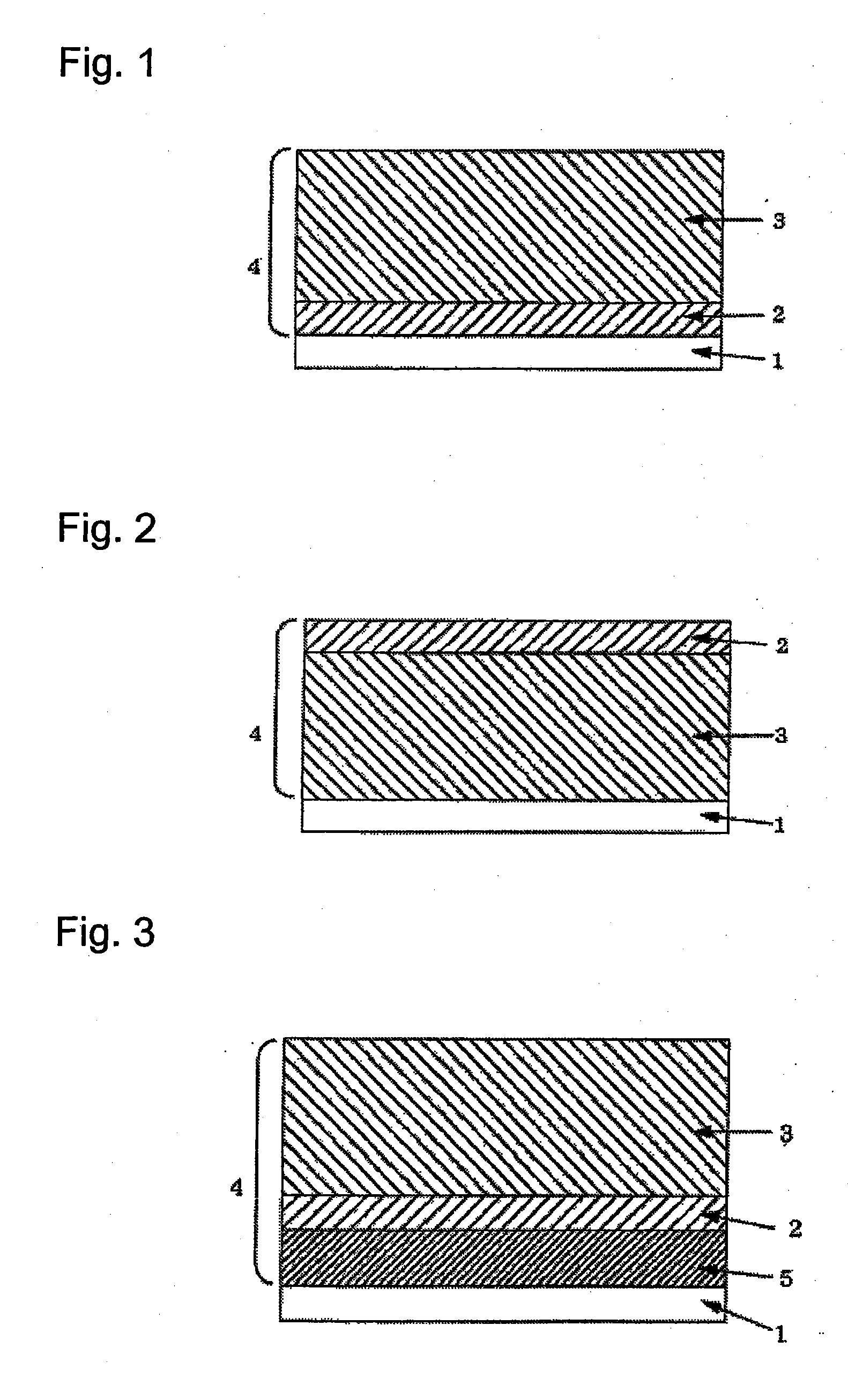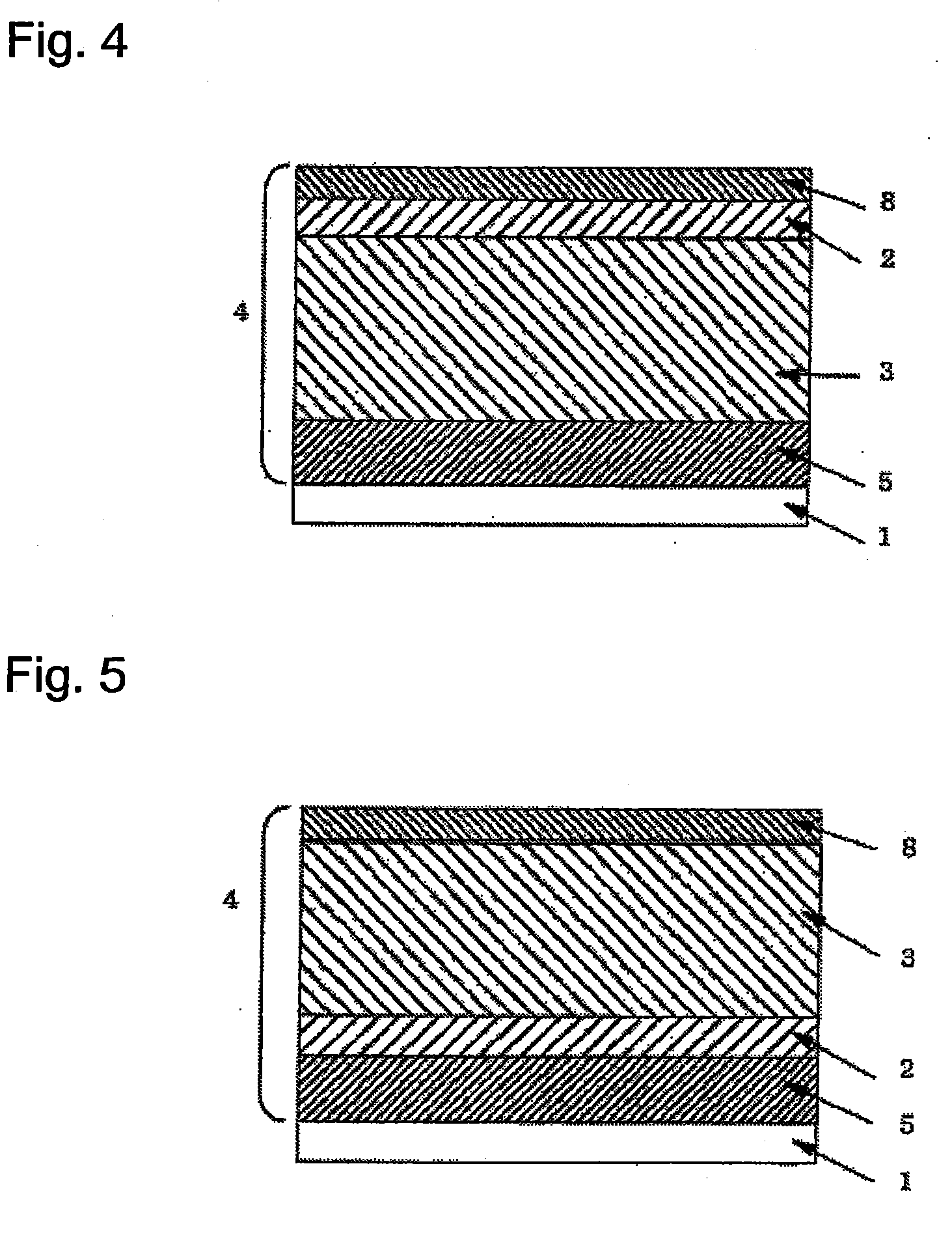P-terphenyl compound and photosensitive body for electrophotography using such compound
a technology of pterphenyl compound and photosensitive body, which is applied in the direction of electrographic process, instrument, corona discharge, etc., to achieve the effects of improved solubility, high sensitivity, and excellent drift mobility
- Summary
- Abstract
- Description
- Claims
- Application Information
AI Technical Summary
Benefits of technology
Problems solved by technology
Method used
Image
Examples
example 1
Synthesis Example 1
Synthesis of Compound No. 1
[0063]After 33.3 g (0.25 mol) of 5-aminoindane (manufactured by Tokyo Chemical Industry Co., Ltd.) was dissolved in 250 ml of glacial acetic acid, the solution was heated at 50° C., and 51.0 g (0.5 mol) of acetic anhydride was added dropwise. After the termination of the dropping, stirring was performed for 4 hours. After the termination of the reaction, the reaction solution was poured into 1500 ml of ice water with stirring. Precipitated crystals were separated by filtration, and washed with 1000 ml of water. The resulting crystals were dried to obtain 37.06 g of 5-(N-acetylamino)indane (yield: 84.6%, melting point: 100.5 to 103.5° C.).
[0064]5-(N-Acetylamino)indane (26.28 g (0.15 mol)), 43.61 g (0.20 mol) of iodotoluene, 25.88 g (0.188 mol) of anhydrous potassium carbonate and 2.38 g (0.038 mol) of copper powder were mixed, and heated up to 200° C. while introducing nitrogen gas, followed by stirring for 6 hours. After the termination ...
example 2
Synthesis Example 2
Synthesis of Compound No. 2
[0067](4-Methoxy-2-methylphenyl)phenylamine (14.1 g (0.066 mol)), 14.5 g (0.030 mol) of 4,4″-diiodo-p-terphenyl, 5.0 g (0.036 mol) of anhydrous potassium carbonate, 0.38 g (0.006 mol) of copper powder and 15 ml of n-dodecane were mixed, and heated up to 200 to 210° C. while introducing nitrogen gas, followed by stirring for 30 hours. After the termination of the reaction, the reaction product was extracted with 400 ml of toluene, and insoluble matter was removed by filtration. Then, the filtrate was concentrated to dryness. The resulting solid matter was purified by column chromatography (carrier: silica gel, eluent: toluene:hexane=1:2) to obtain 15.7 g of N,N′-di(4-methoxy-2-methylphenyl)-N,N′-diphenyl-4,4″-diamino-p-terphenyl (compound No. 2) (yield: 80.0%, melting point: 180.8 to 183.4° C.).
[0068]This was identified as compound No. 2 by elemental analysis and IR measurement. An IR spectrum is shown in FIG. 9. The elemental analysis va...
example 3
Synthesis Example 3
Synthesis of Compound No. 3
[0069]After 23.3 g (0.17 mol) of 4-methoxy-2-methylaniline (manufactured by Tokyo Chemical Industry Co., Ltd.) was dissolved in 20 ml of glacial acetic acid, the solution was heated at 50° C., and 51.0 g (0.5 mol) of acetic anhydride was added dropwise. After the termination of the dropping, stirring was performed for 3 hours. After the termination of the reaction, the reaction solution was poured into 500 ml of ice water, followed by stirring. Precipitated crystals were separated by filtration, and washed with 400 ml of water. The resulting crystals were dried to obtain 23.77 g of 4-methoxy-2-methylacetanilide (yield: 78.0%).
[0070]4-Methoxy-2-methylacetanilide (20.61 g (0.115 mol)), 24.11 g (0.050 mol) of 4,4″-diiodo-p-terphenyl, 17.97 g (0.130 mol) of anhydrous potassium carbonate, 1.27 g (0.020 mol) of copper powder and 25 ml of n-dodecane were mixed, and heated up to 205° C. while introducing nitrogen gas, followed by stirring for 5 ...
PUM
| Property | Measurement | Unit |
|---|---|---|
| thickness | aaaaa | aaaaa |
| thickness | aaaaa | aaaaa |
| thickness | aaaaa | aaaaa |
Abstract
Description
Claims
Application Information
 Login to View More
Login to View More - R&D
- Intellectual Property
- Life Sciences
- Materials
- Tech Scout
- Unparalleled Data Quality
- Higher Quality Content
- 60% Fewer Hallucinations
Browse by: Latest US Patents, China's latest patents, Technical Efficacy Thesaurus, Application Domain, Technology Topic, Popular Technical Reports.
© 2025 PatSnap. All rights reserved.Legal|Privacy policy|Modern Slavery Act Transparency Statement|Sitemap|About US| Contact US: help@patsnap.com



